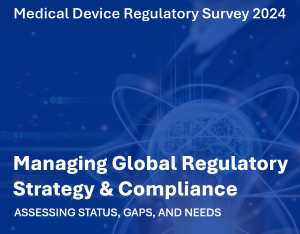

This blog explores the transformative potential of AI assistants in healthcare management and delves into the benefits for providers, medical assistants, and obviously, patients.

This blog explores the transformative potential of AI assistants in healthcare management and delves into the benefits for providers, medical assistants, and obviously, patients.

CitiusTech Senior VP and Market Head, Healthcare Providers, John Squeo, shares five game-changing shifts that will redefine the future of US healthcare and unlock a more streamlined, accessible and patient-centric system.

The future of healthcare lies in the successful integration of workflow automation and advanced technologies. As the buzz-word salad of AI, such as NLP, LLMs, Gen AI, RPA, etc continue to evolve, their potential to revolutionize healthcare workflows will only increase.

Nearly 2/3 of device makers say their regulatory intelligence may be insufficient and they lack the resources to complete all product compliance needs this year. See the executive summary of this MedTech Intelligence audience research.

In a multi-year agreement, Zimmer Biomet will commercialize RevelAi Health’s patient care-management platform, care team dashboard for providers, and any future products or services.

Pager Health announces new technology and services for patients and members to engage with providers and care management teams, customer service, and others – all connected in a unified conversation.

Payers demand robust evidence that molecular diagnostics and AI/ML technologies demonstrate clear ability to improve overall patient health or healthcare economics even if the technologies themselves don’t directly deliver the final outcome. This disconnect between a technology’s function and the desired long-term impact creates a hurdle for [innovators] to overcome when convincing payers of their value proposition.

The multicenter international study, which enrolled 258 patients across 15 sites in the U.S. and Japan, compared HeartFlow’s automated deep-learning-based method for segmenting coronary atherosclerosis in coronary computed tomography angiography against the reference standard of intravascular ultrasound.

Due to a shortage of radiologists and other imaging specialists, AI-enabled technologies are of significant interest—and hold particular promise—in medical imaging. In this article, Penny Pinnock of Siemens Financial Services (SFS), discusses the routes to investment available for healthcare organizations looking to acquire efficiency boosting technology while protecting their financial health.

Several alternatives exist to obtain FDA approval of artificial intelligence-enabled medical technology. Determining the best approach for a new device will require an awareness of each pathway’s specific requirements. An appreciation of the unique considerations for artificial intelligence-enabled technologies is another essential component of an efficient and effective application.